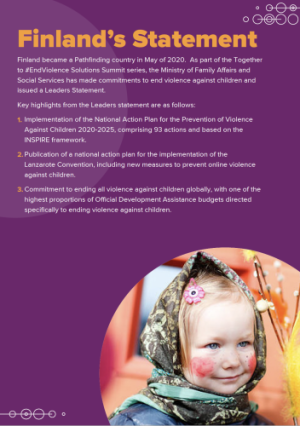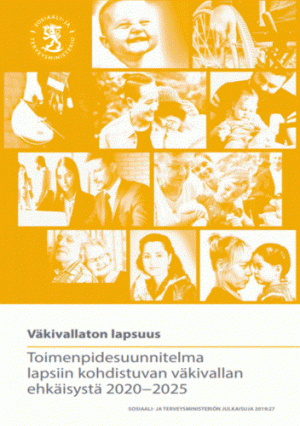 Together to End Violence Leaders Statement
Together to End Violence Leaders Statement
Finland becomes Pathfinding in May 2020
In May of 2020, Finland became the 30th Pathfinding country to join the End Violence Partnership.
“The Government of Finland looks forward to contributing to the Partnership by sharing effective models and lessons learning, and to learning from other Pathfinder countries and partner organisations,” said Paivi Sillanaukee, the Director-General of Finland’s Ministry of Social Affairs and Health.
Once a country becomes pathfinding, they commit to prioritising children's safety by making a formal, public commitment to ending all forms of violence against children; appointing a senior government focal point to lead the in-country process; and developing an evidence-based and costed national action plan that sets commitments for three to five years, along with a related resource mobilization plan and other activities.
This announcement follows the release of Finland's new, five-year action plan to prevent violence against children. This action plan, which focuses on children aged 0-17, includes the implementation of the Barnahus Model throughout the country. It aims to improve the position of child victims in the current service, care and crime systems, while also taking into account children who are at risk of using – or have already used – violence.
